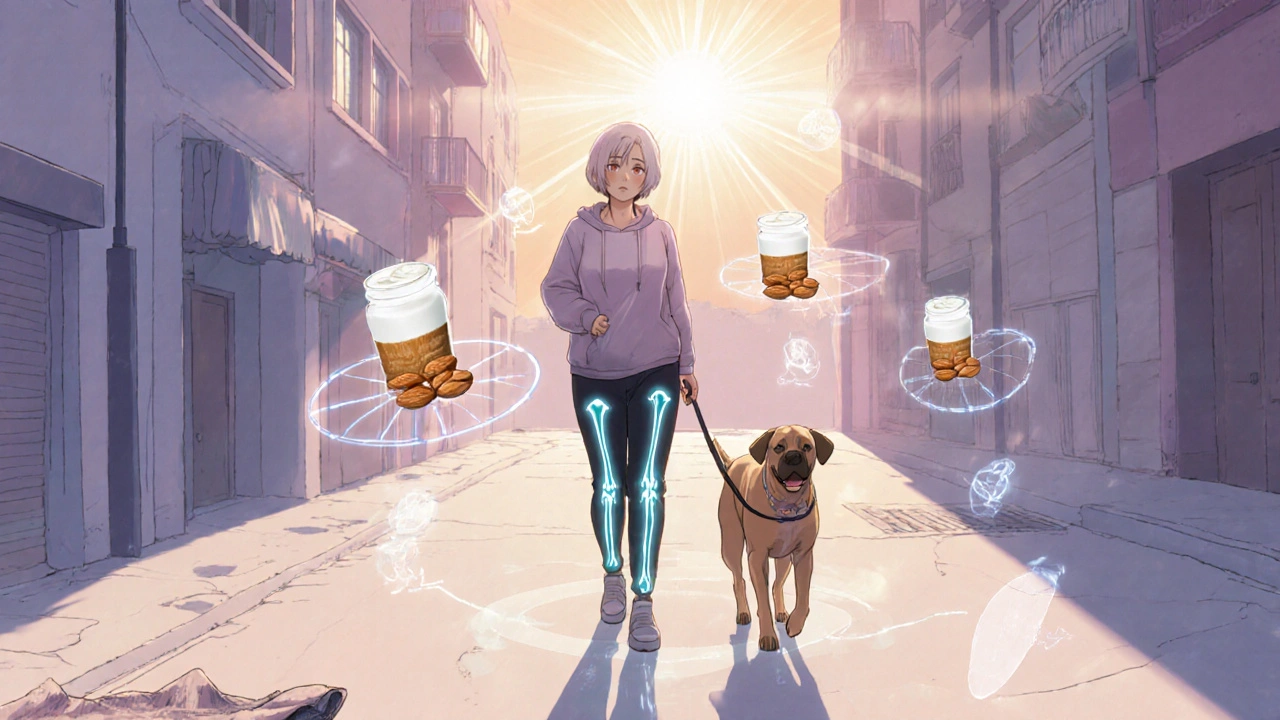Osteoporosis Prevention: How to Protect Your Bones and Avoid Fractures
When you think about osteoporosis prevention, the process of maintaining bone density and reducing fracture risk through lifestyle and medical strategies. Also known as bone health maintenance, it's not just for older adults—it starts decades before symptoms appear. Most people don’t realize their bones are alive, constantly breaking down and rebuilding. But as you age, or if you take certain medications like proton pump inhibitors or oral corticosteroids, that balance shifts. Without action, you’re not just at risk for a broken hip or wrist—you’re at risk for losing independence.
Two big players in osteoporosis prevention, the process of maintaining bone density and reducing fracture risk through lifestyle and medical strategies. Also known as bone health maintenance, it's not just for older adults—it starts decades before symptoms appear. are calcium, a mineral essential for building and maintaining strong bones. Also known as bone mineral, it's the primary structural component of the skeleton. and vitamin D, a hormone-like nutrient that helps your body absorb calcium and regulate bone turnover. Also known as the sunshine vitamin, it’s critical for bone strength and immune function.. But getting enough isn’t just about popping a pill. Real-world studies show many people take calcium supplements without vitamin D—and end up with no benefit. And too much calcium from supplements without movement can even increase heart risks. The best sources? Dairy, leafy greens, fortified foods, and sunlight. But if you’re on long-term acid reflux meds or have kidney issues, your body might not absorb it properly. That’s where knowing your options matters.
It’s not just what you eat. Movement is non-negotiable. Weight-bearing exercises like walking, lifting weights, or even stair climbing signal your bones to get stronger. Pilates, for example, improves muscle control and stability, which directly lowers your chance of falling—a major cause of fractures in people with thinning bones. And it’s not just about strength. Balance training matters just as much. If you’ve ever taken a fall, you know how quickly things can go wrong. Many people don’t connect their sedentary job, poor sleep, or anxiety about side effects from medications to their bone health. But stress, lack of rest, and fear of taking necessary drugs can quietly undermine everything you’re trying to do.
There’s a lot of noise out there about natural remedies and supplements. Some help. Many don’t. And some, like feverfew or certain herbal blends, can interfere with blood thinners or bone-building meds. The real winners? Proven, tested strategies: enough calcium and vitamin D, regular exercise, avoiding smoking, limiting alcohol, and knowing which medications might be silently hurting your bones. You don’t need to be a doctor to make smart choices—you just need clear, honest info. Below, you’ll find real-world comparisons, safety tips, and practical advice from people who’ve been there. No fluff. No guesswork. Just what works.

Osteoporosis Risk: How to Stop Bone Density Loss and Prevent Fractures
Osteoporosis silently weakens bones, leading to fractures. Learn the real risk factors, what actually builds bone strength, and how to prevent breaks - with practical, science-backed steps you can start today.
